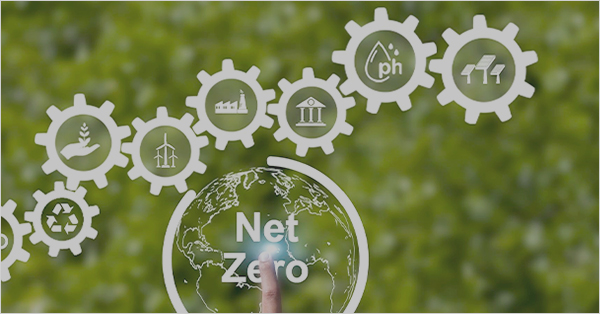
The Securities and Exchange Commission (SEC), the governing body of U.S. securities trading, plans to require all publicly traded companies to disclose their greenhouse gas emissions in a standardized manner, according to sources, as well as the climate risks facing their business and production activities[1]. The SEC protects investors and maintains the integrity of the securities markets. It also combats fraud in the securities investment industry to ensure that securities markets are fair.
The SEC proposed, on March 21, rule changes that will require registered companies to include climate change-related disclosures in their periodic statements and reports, including climate-related financial risks that will reasonably be expected to have a material impact on their business, results of operations, or financial condition, and certain climate-related metrics, such as Greenhouse Gas (GHG) emissions in a note to their financial statements. This proposal will be subject to a 60-day comment period and may then be revised and finally voted on for eventual approval.
The complex yet extensive 534-page initiative builds on previous voluntary efforts to make information transparent and disclose the various risks that climate change entails, and responds in part to pressure from investors. The fact is that companies that publicly offer their securities on the stock exchange are responsible for approximately 40% of GHG emissions. In this sense, investors’ reasoning is clear: transparent information on climate risk would enable them to make decisions that consider the most severe risks and impacts of climate change, thus favoring the transition to a low-carbon economy.
Other countries are already moving in this direction: Great Britain will implement a disclosure regime in April 2022, becoming the first G20 country to make such climate disclosures mandatory. Japan is also proposing similar regulations, New Zealand has set them in place in 2021, while the European Commission plans to do so in 2024. Regulators in Singapore and Hong Kong are setting even more stringent standards in this area.
In the United States, some 1,500 corporations already voluntarily disclose their emissions up to Scope 3[2], which covers emissions from direct combustion, emissions from energy purchases and, in addition, emissions from their value chains and the products they produce; the latter generally represent the largest corporate contribution to climate change.[3]
It is possible that this new regulatory framework will come up against obstacles, including some states that – for various reasons – are opposed to this type of regulation associated with addressing climate change.
[1] https://www.sec.gov/news/press-release/2022-46
[2] Direct Emissions or Scope 1: set of emissions produced by own or controlled sources.
Indirect emissions from energy consumption and distribution or Scope 2: set of indirect emissions derived from the consumption of energy and/or steam generated by third parties.
Other indirect emissions or Scope 3: emissions that are not owned nor controlled.
[3] According to CDP Disclosure Insight Action estimates







 Stay updated on the latest trends of Green Finance
Stay updated on the latest trends of Green Finance


